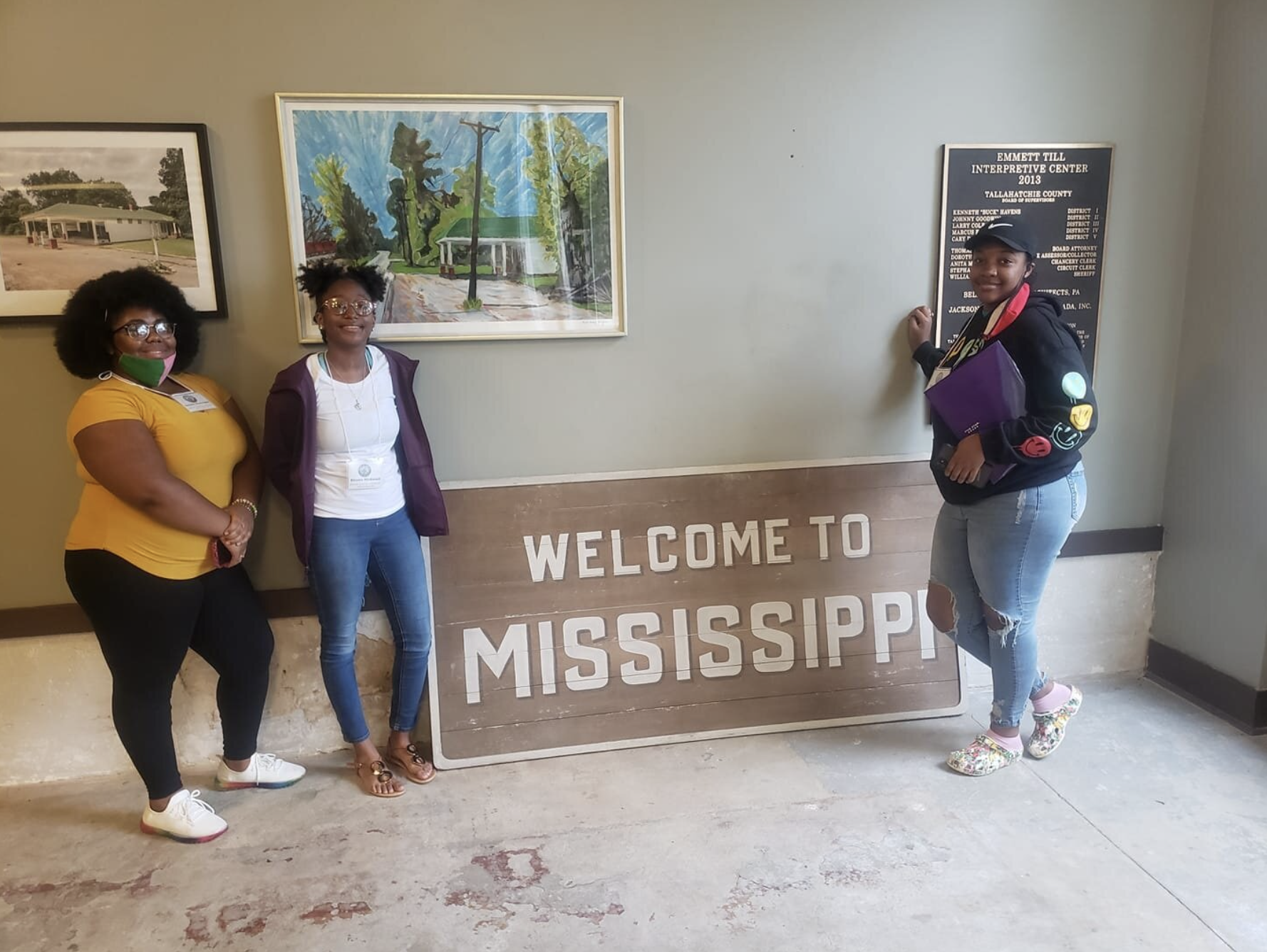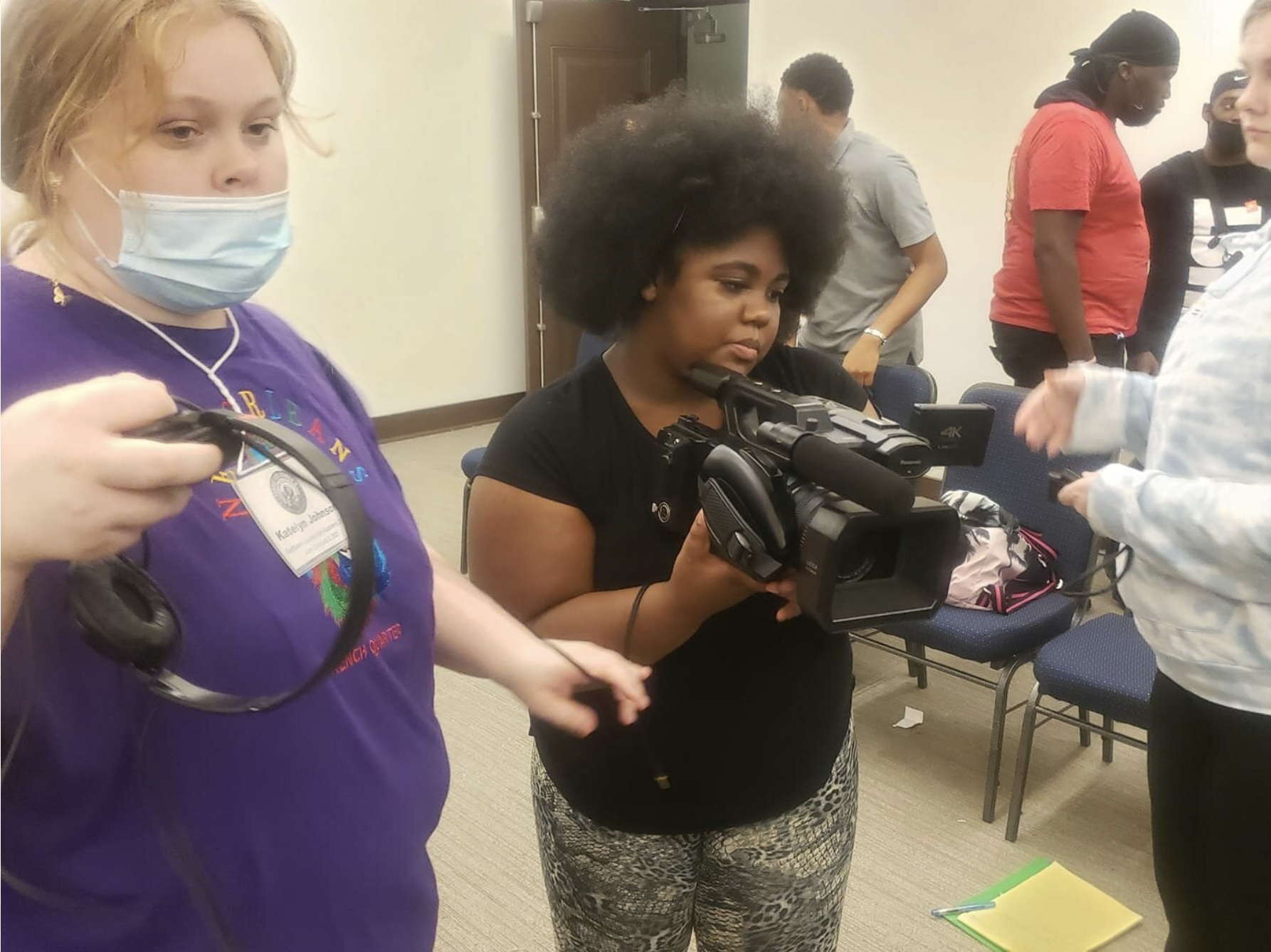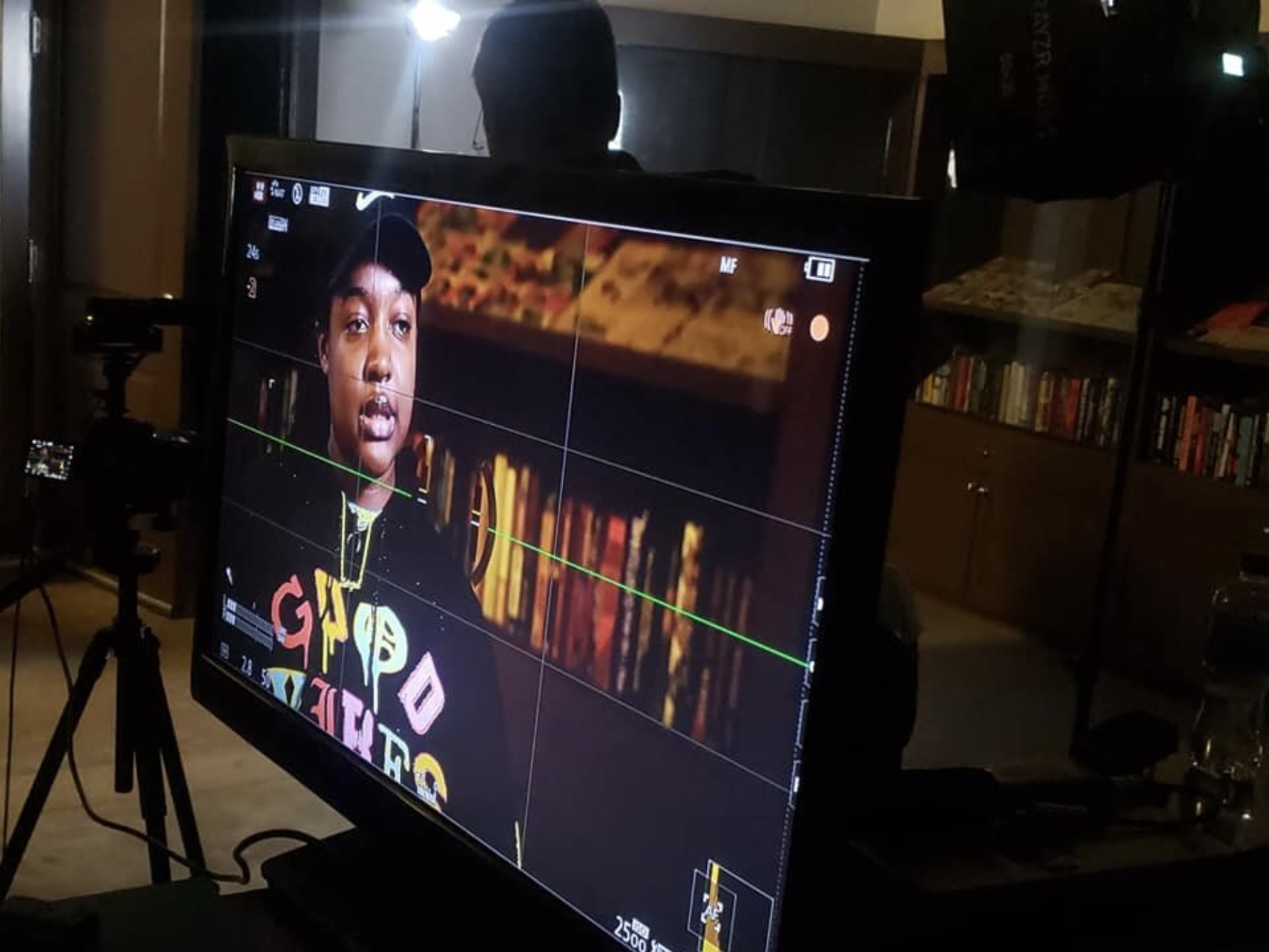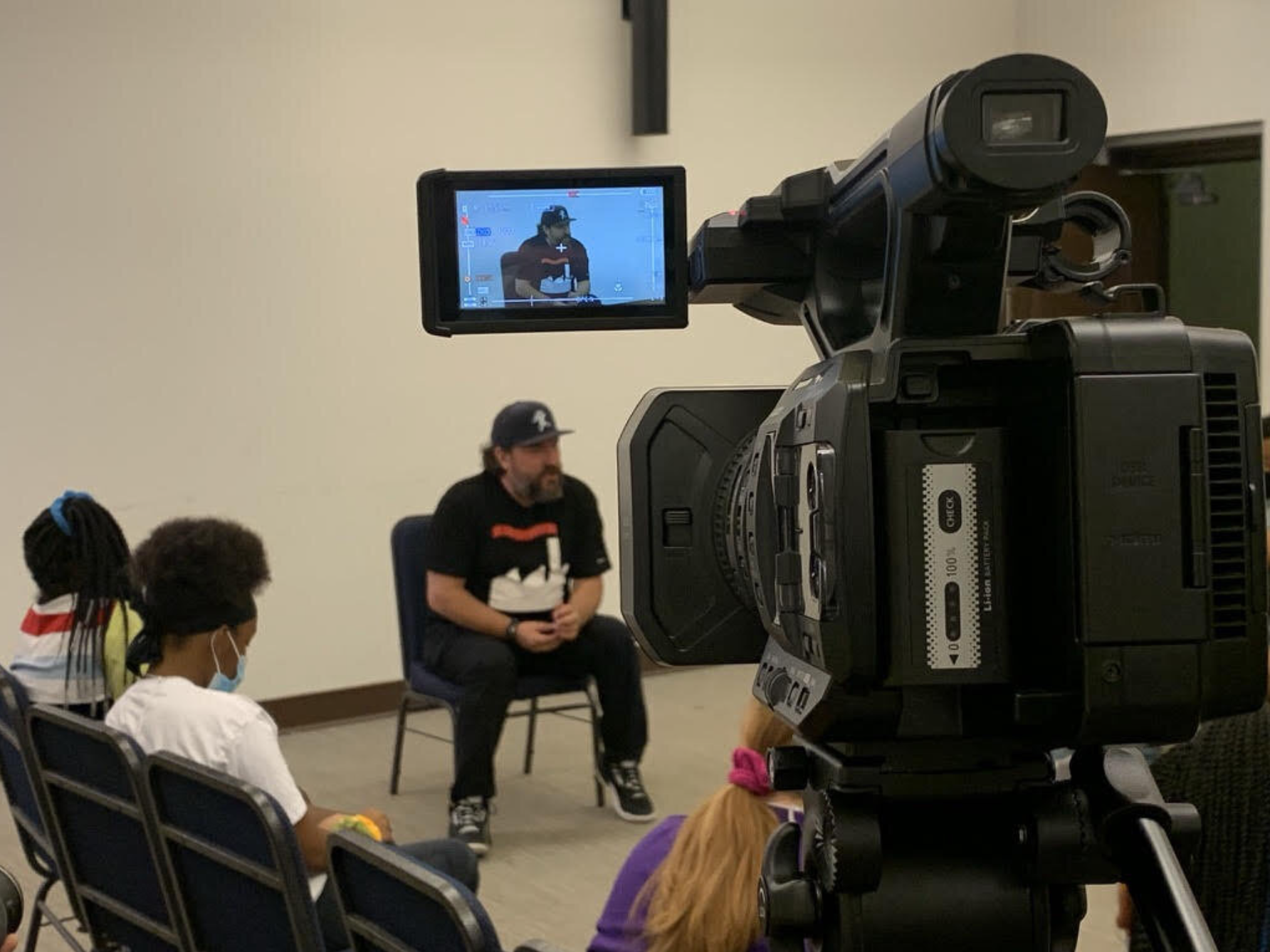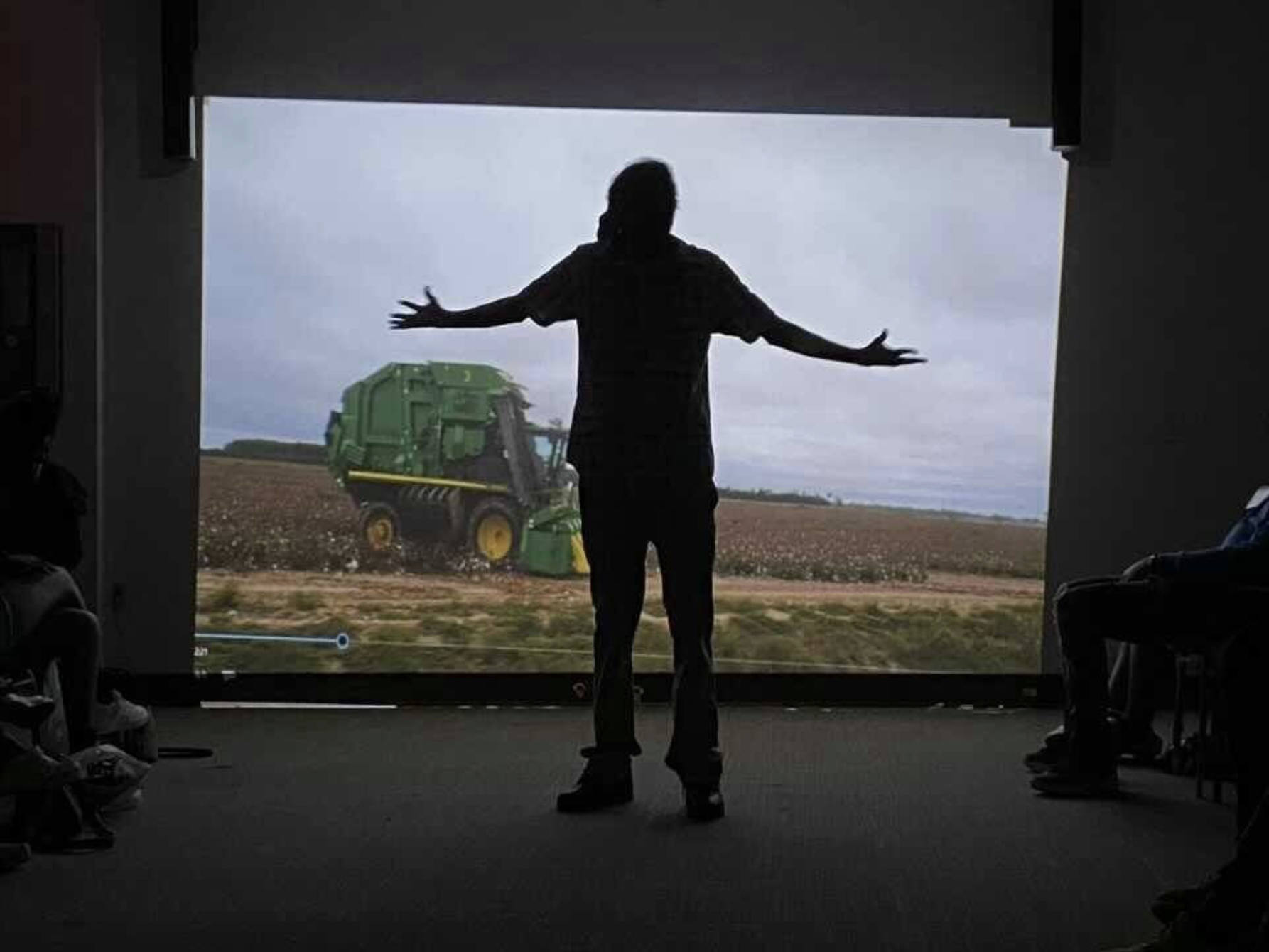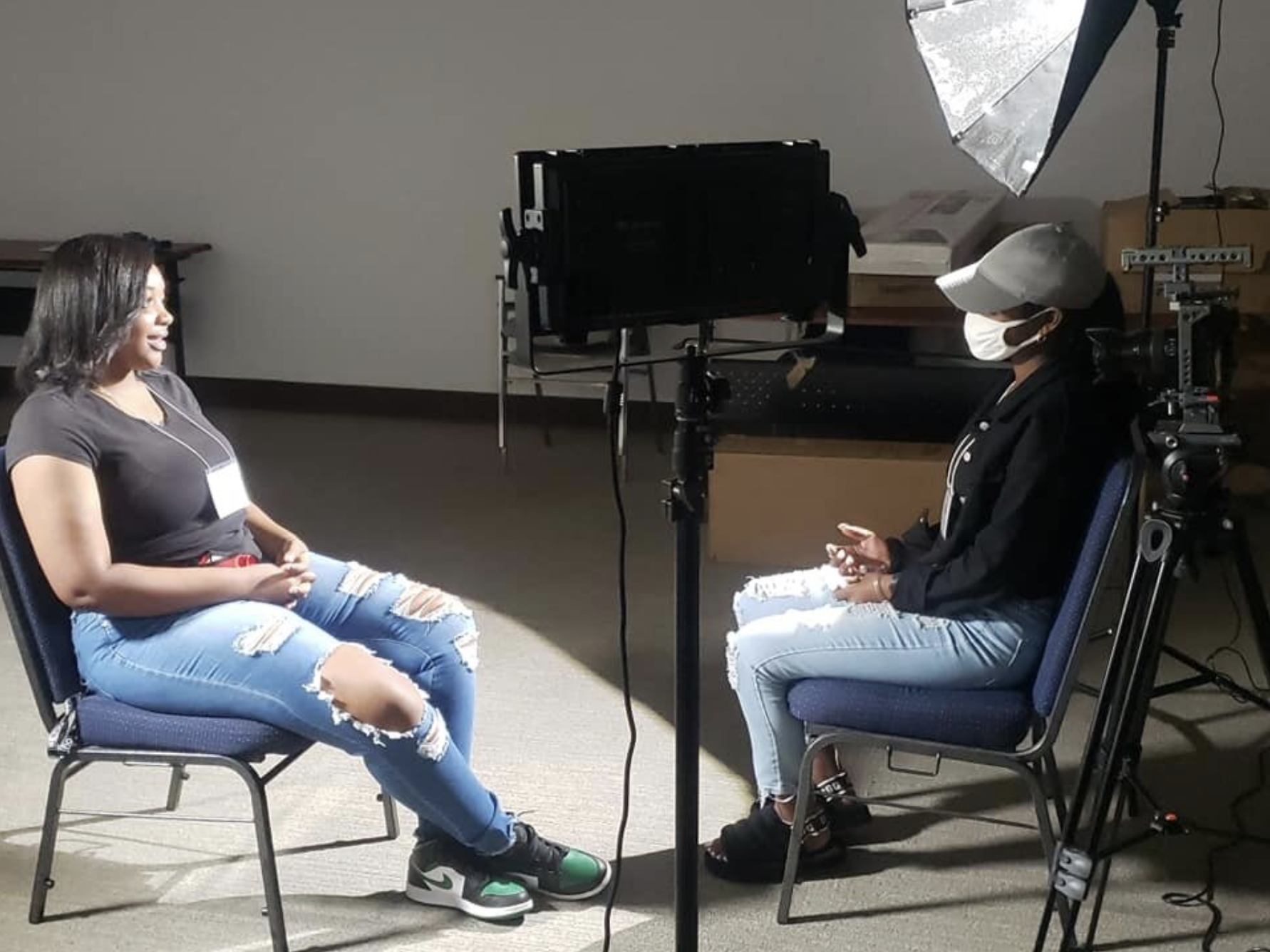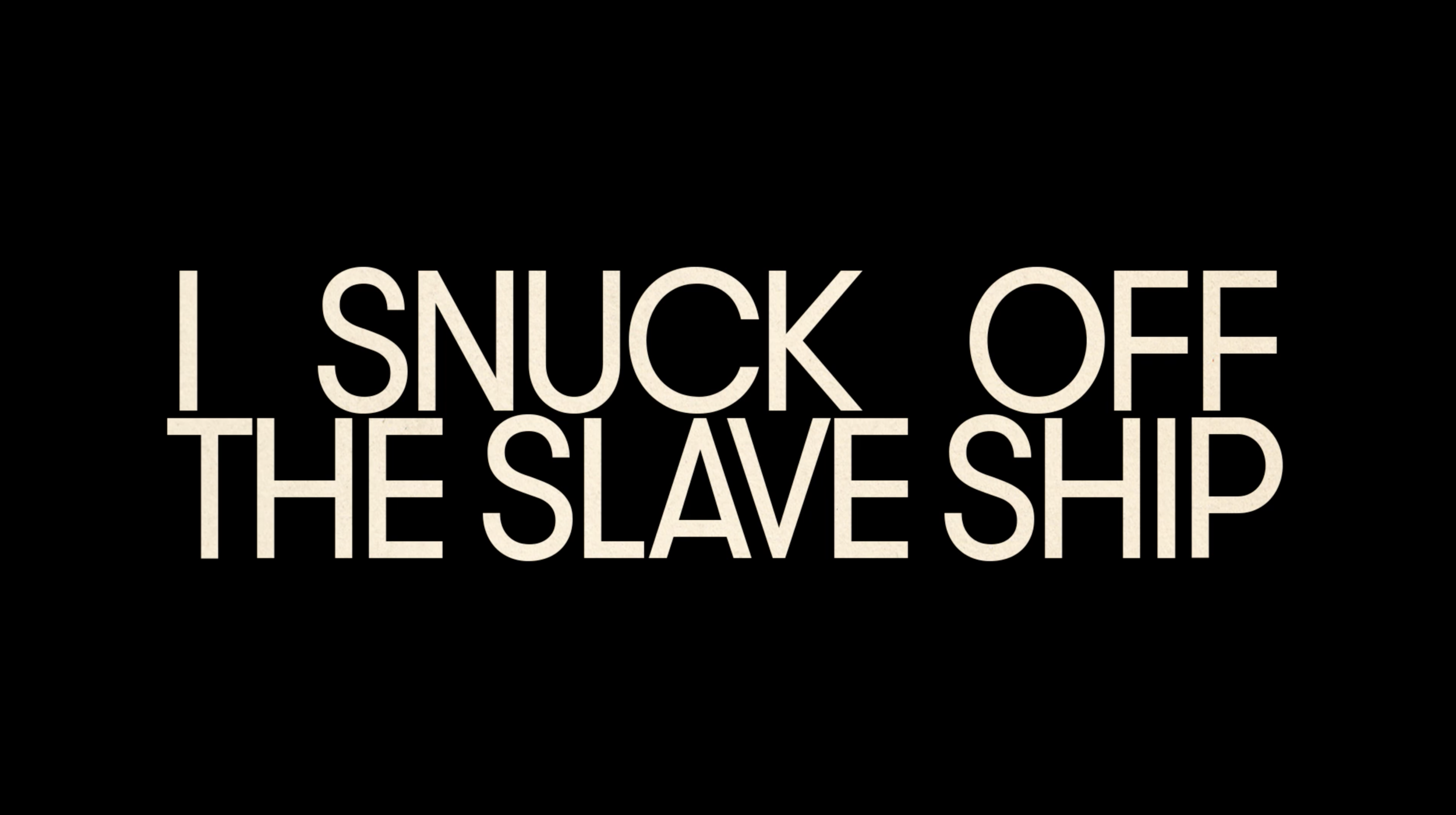As the makers of “Fannie Lou Hamer’s America” celebrate the film’s debut on PBS, they are working hard to build up and sustain a new generation of visual storytellers from the Mississippi Delta.
Story by Josina Guess
February 22, 2022
Carledia Jones seemed quiet that summer day in 2018 while her group at Sunflower County Film Academy brainstormed project ideas. Then she asked if it was OK to tell a story. That was the whole reason they were there, recalls academy co-founder Joy Davenport — to encourage students to find their voice and speak their truth.
Jones shared how she and some friends were recently driving through the rich part of town. There’s not much for teenagers to do in Indianola, Mississippi, and they thought it would be fun to look at the big houses. Some white homeowners came out and began to question the Black teens. Jones and her friends drove away but realized they were being followed. One of the cars cut them off at a turnaround and the driver said they’d called the police. Jones and her friends were confused — they were simply driving and suddenly being cornered and accused. They managed to drive away just as another car was approaching, but Jones was still shaken by the incident as she recounted it to her film classmates.
The class decided to film a reenactment of Jones’ experience and include it in their capstone project, “Find Your Voice.” The group had been learning about the Civil Rights movement and documentary filmmaking, making connections between then and now. “I couldn’t have asked for more,” Davenport says. “For them to be so honest and open with us and to say, ‘This was something that was painful, but we want to share about what it was really like.’ That’s the goal.”
Jones’ story was an example of the “now,” and students’ interviews with community elders gave a sense of what it was like “then.” Many of them knew their aunts, uncles, or grandparents had been involved in the Civil Rights movement but had never asked for their experiences with the Student Nonviolent Coordinating Committee (SNCC), Congress of Racial Equality (CORE), or the National Association for the Advancement of Colored People (NAACP). Fannie Lou Hamer was not just a historical figure for the elders in their community. They worked alongside her in the freedom struggle. A struggle that continues.
At the Emmett Till Interpretive Center in Sumner, Mississippi, high school students in the 2021 Sunflower County Film Academy program learn about the Civil Rights Movement as they develop skills in documentary filmmaking and conducting oral history interviews.
Inspired by SNCC Freedom Schools, the Sunflower County Film Academy teaches Mississippi Delta high school students about Fannie Lou Hamer’s life and legacy and the history of documentary filmmaking, along with hands-on skills in video production. The students are given a small stipend as they work together over a five-week period to write, direct, produce, and edit a film.
Instructor Pablo Correa loves to see the pride in students’ faces as they learn the craft of filmmaking. After about the first week into the program, the students had made a short film, and seeing the participants engaged, smiling, paying attention to details, and eager to learn more gave Correa a sense of satisfaction.
The 2018 class held a screening for friends and family at the B.B. King Museum in Indianola. “I cried then,” Davenport says, “and I’m fixin’ to cry now.”
Instructor Pablo Correa and students Keyshawn Brison, Keyshaun Meeks, and Keziah D. Allen watch "Find Your Voice" at the 2019 Crossroads Film Festival in jackson, Mississippi.
“Find Your Voice” was accepted in the 2019 Crossroads Film Festival in Jackson, Mississippi. Although all were invited, only three students — Keyshaun Meeks, Keziah D. Allen, and Keyshawn Brison — were able to come. “Just looking at their faces watching themselves on the big screen in a crowded movie theater,” Correa says, “it was priceless.”
“Minorities and women are underrepresented in IT fields because they don’t see themselves as the masters of this technology; they basically take orders from this technology,” explains Correa, who serves as program director and assistant professor of the Digital Media and Communication program at the University of St. Joseph in West Hartford, Connecticut. “We wanted to bridge the gap of this digital divide and … help them see themselves as capable enough to be represented in an IT field and to find themselves in these jobs in the future.”
Correa’s Ph.D. studies at Florida State University connected him with Davenport and the “Fannie Lou Hamer’s America” project. When Correa was growing up in Fort Lauderdale, Florida, and dreaming about filming rap videos for his friends, he didn’t know what a Ph.D. was. When he went back to school at age 30, he realized there is a whole world of media opportunities beyond big Hollywood productions.
R.J. Fitzpatrick graduated from Delta State University in 2017 with a degree in digital media. While looking for a job, he was doing volunteer work for a woman who introduced him to Correa and Davenport. The team was so excited to meet a young filmmaker from Ruleville, Hamer’s hometown, they took a break from filming to go out and meet him. Working on “Fannie Lou Hamer’s America” and as an instructor at the Sunflower academy has allowed Fitzpatrick to stay in the Delta and give other young people inspiration for their futures.
“I love Mississippi. I love the Mississippi Delta in particular because it’s where I’m from, because of the history,” Fitzpatrick says, but he always thought he would need to leave Mississippi to pursue his career as a filmmaker. “I never thought … that I would be able to grow and develop here. I beat the odds, I guess. When I tell someone I’m going to live off my art, you get a lot of people saying that’s not going to work.” He loves showing that it is not only possible for himself, but also for the program participants.
~ Watch the Film ~
Just as the summer 2018 program was drawing to a close, Lonnie Holley and Cyrus Moussavi asked Davenport for help in creating a music video for Holley’s piece “I Snuck Off the Slave Ship.” Davenport says she was busy with Sunflower, so the only way it could work was if they could hire some of her students to help. Eight students shot footage, and when the short film appeared at the Sundance Film Festival in 2019, their names appeared in the credits. Fitzpatrick says Sundance is an obvious highlight, but his greatest joy is in knowing that former academy participants are stepping into leadership roles.
Keyshaun Meeks enjoyed his experience so much that first summer, he came back in 2021 as an assistant instructor. He is following in Fitzpatrick’s footsteps and pursuing a degree in media at Delta State University and will teach in the 2022 program.
In 2019, the Sunflower County Film Academy took a break as the production team worked on final edits and funding for “Fannie Lou Hamer’s America.” In 2020, they couldn’t meet in person because of Covid-19. They reconvened in the summer of 2021 at the Emmett Till Interpretive Center in Sumner, Mississippi. That class of 22 students produced “An Army Rising Up,” incorporating oral histories along with their own voices and reflections on life in the Mississippi Delta, Fannie Lou Hamer, and Emmett Till.
~ Watch the Trailer ~
After the 2018 workshop, Davenport began undergoing gender transition. The 2019 Sundance festival was the first time she publicly used the name Joy. “I’m from the South,” Davenport says. “I know that trans people are not necessarily treated like serious people; at best we’re not treated like serious people. When I started transitioning, I was very worried that I would not be welcome back in Mississippi or that I would not be able to command the attention of a room of high schoolers, but we’re planning our 2022 workshop and we’re talking to folks and it’s fine, so far; no one is batting an eye, everyone’s cool. Part of my journey has been conquering that fear.
“I trust the people I’m working with,” Davenport adds. “I trust Fannie Lou Hamer’s wisdom, which is, if you’re telling the truth, you’ve got nothing to hide, nothing to be afraid of. That was the whole reason I transitioned, to begin with. I had this experience in Mississippi with people who can’t just go home and be closeted. If we are talking about finding our voice, we’re talking about living our truth, we’re talking about documenting our experience, I’m a hypocrite not to be real about this.”
This summer, the Sunflower County Film Academy will gather in Cleveland, Mississippi. “I’d love to see the program grow and for students to have continued access to equipment so that they can get better at it as they go,” Correa says. “There are always students that we end up turning down because we just don’t have the budget or the capacity — the lack of resources make it difficult.” The inaugural program was launched with support from the W.K. Kellogg Foundation. Since then, they have raised, and continue to seek, support from various sources.
“We want this program to succeed beyond our own conception of it. If I get hit by a bus tomorrow,” Davenport says, “I want this program to exist.”
Visit Sunflower County Film Academy to learn more and to help sponsor the academy’s mission. Applications for summer 2022 will open soon.
Josina Guess is a senior writer for The Bitter Southerner and a student in the Narrative Nonfiction MFA program at the University of Georgia. She is a contributor to the forthcoming Bigger Than Bravery: Black Resilience and Reclamation in a Time of Pandemic, edited by Valerie Boyd.
Header graphic based on illustration by Abbie Giuseppe.



